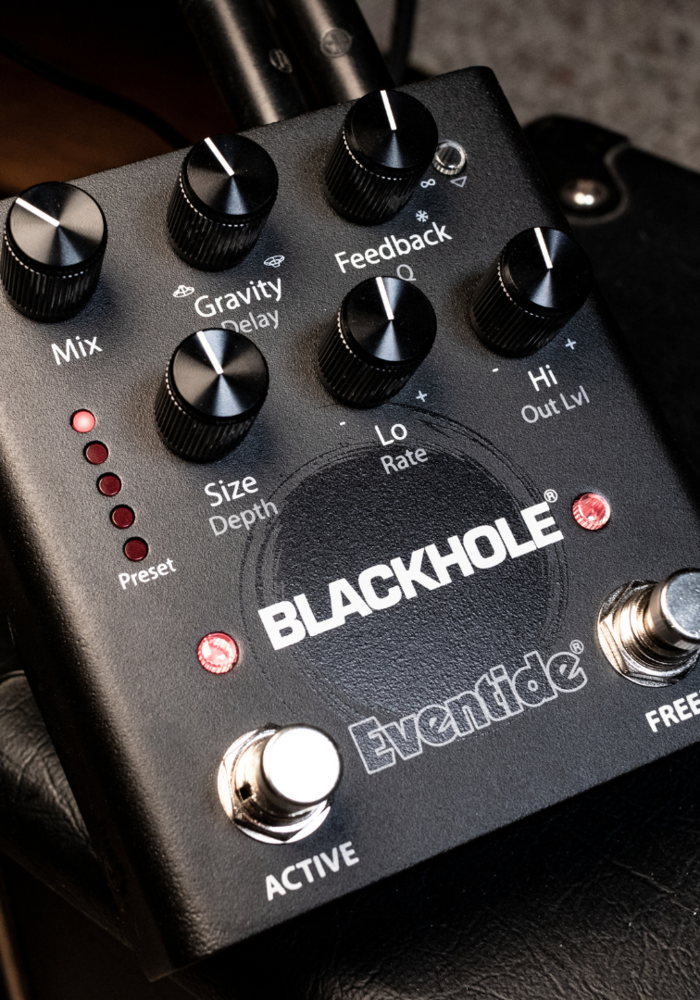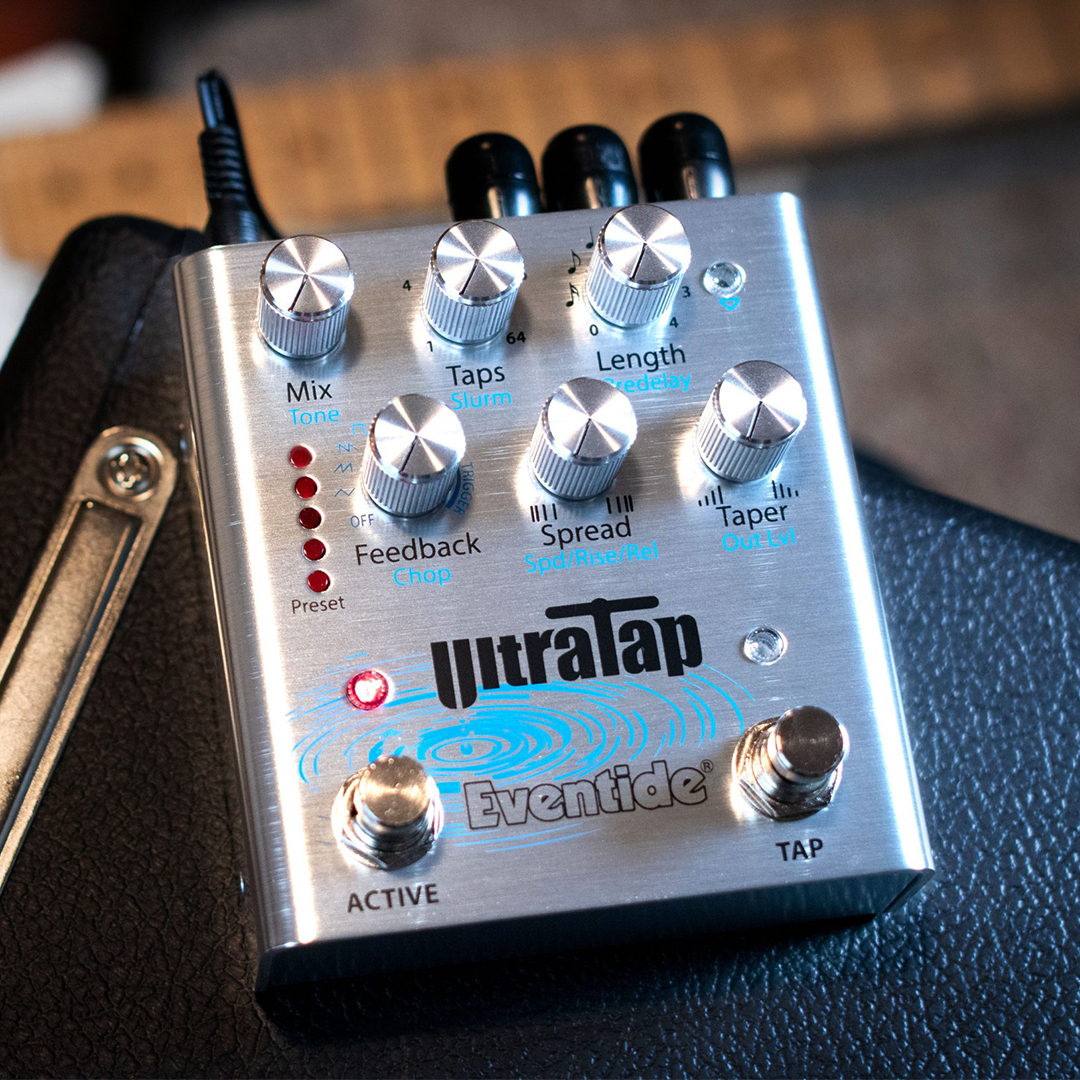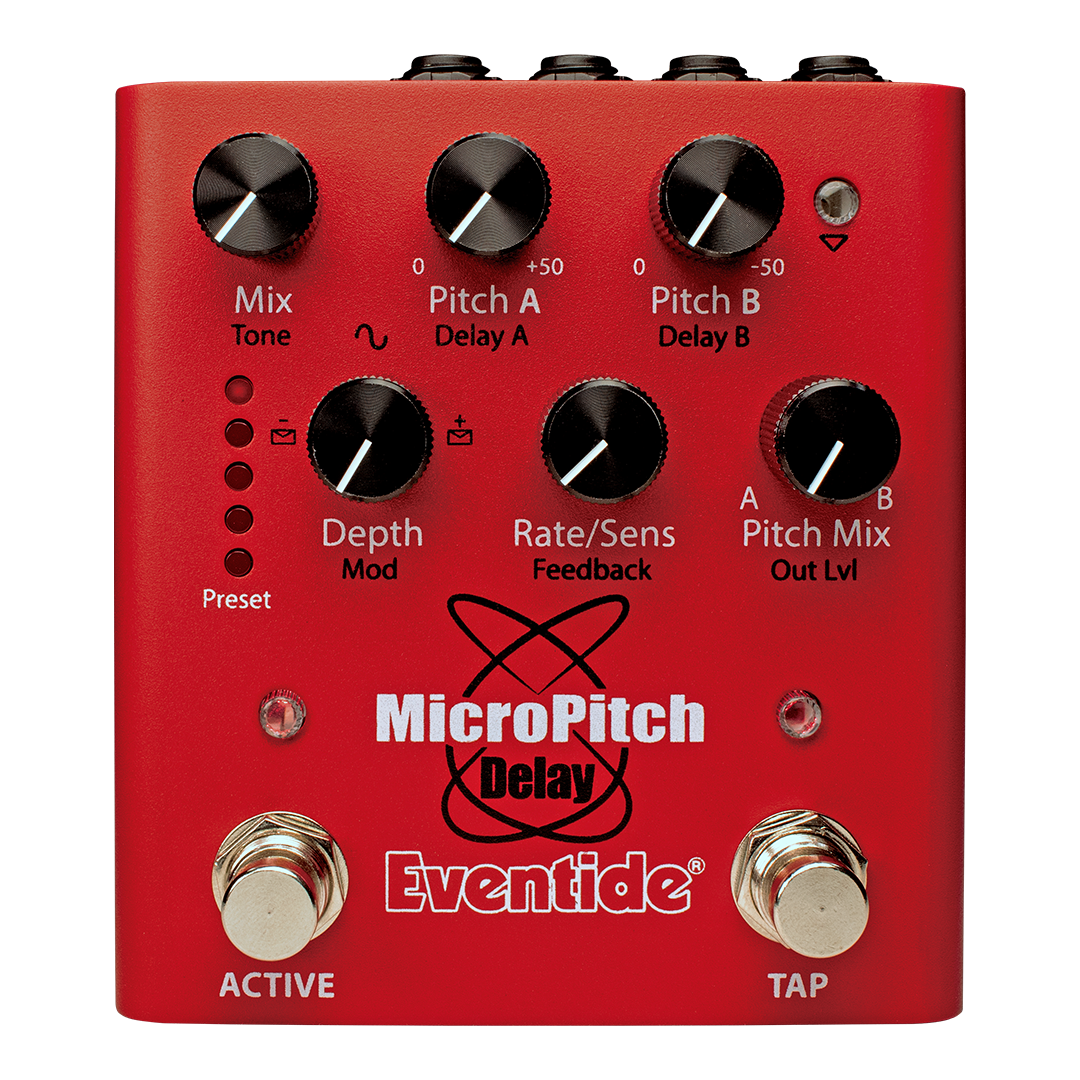Eventide Audio has long been at the very forefront of several aspects of the music and audio industry at large, including guitar and effects pedals, plugins, rackmount, broadcast and more. Headliner endeavoured to see if they are still delivering the goods for pedal enthusiasts by having a lot of fun with a choice selection of their pedals, by seeing if they could complement two analogue synthesizers from Modal Electronics, the Argon8 and Cobalt8.
Eventide was one of the world’s first companies to manufacture digital audio processors, and its products are mainstays in sound recording and reproduction, postproduction, and broadcast studios. And considering they were founded in the basement of a New York City studio, it’s wonderful to see them as a hugely popular and established international brand.
So for this little experiment, Headliner opted for three of their flagship products: The Blackhole Reverb, UltraTap Pedal and MicroPitch Delay.
The Blackhole Reverb (pictured above) is already quite a name, not only in physical form, but it is very popular as a software plugin also. It is billed as an ‘otherwordly reverb’. This description certainly seems to suggest that those wanting ethereal and ambient textures are in the right place. It boasts five presets and many more available from Eventide’s website. The Predelay, Feedback and Gravity buttons are enough to whet the appetite.
The UltraTap pedal (pictured below) is a different prospect, offering tape delays, reverb, modulation and more, so fittingly described as ‘a multiverse of tone.’ It has onboard LFOs and envelopes, and the lovingly titled ‘Slurm’ control for smearing and slurring taps together to create unique reverbs and choruses. On top of all this, you can control feedback, the spread/distance between taps, and ‘chop’ for expressive modultations.





